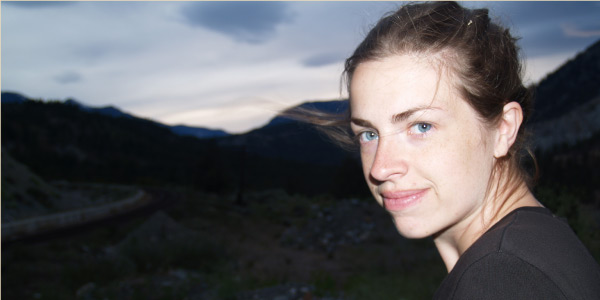

I have an imposing 538-page bright red tome on my shelf entitled From Russia with Tears. It is embossed in gold letters. The inscription is written in my Grandma Bargen’s handwriting and says:
To Catherine R Bargen
Great-Grandaughter of Franz & Liese Bargen
From Grandpa & Grandma
Peter & Anne Bargen
June 1st 1992
I was just finishing Grade 11 when my grandparents gifted me with this book, clearly enthused to be reading intense historical letters from lost relatives. Okay, maybe not so much. Still, I was definitely aware that Grandpa and Grandma had worked hard on these. I had seen Grandma concentrating in the living room wearing her glasses with the chain around her neck. I had overheard both Grandma and Grandpa telling my parents that many of the letters had made them weep to the point of having to abandon the work for periods of time. I knew family pride and connection was running high, and this was confirmed by Grandma’s formal inscription in the book -- I was being defined as a great-granddaughter, placed in a historical context that I knew very little about, but sensed was important to those who knew more about what was going on than I did.
Now, at 32, I am just returning from a trip from Ukraine where all 4 of my grandparents were born. I traveled there with MCC (Mennonite Central Committee) where I was working as a consultant for their peace and justice programs. It was never far from my mind that I was traveling and working in relative comfort, while so many of my own kin fled under threat of violence or lived in extreme hardship and inhumane conditions. My interest in my own family history has never been so high…it makes me miss Grandpa and Grandma more than ever.
My relationship with my grandparents deepened significantly after I graduated from high school and actually moved not far from their place in Winfield, BC. We began to relate more as adults, peers even. During our frequent discussions about life and religion, both of them seemed to relish posing the hard questions. Both of them seemed particularly plagued by this question: “Why me? Why did I escape when so many were left to suffer?” When I reflect on it, I suspect their intense interaction with the letters from Russia was a supremely vulnerable and courageous act. The task demanded complete immersion into horrific and painful experiences of loved ones, and being continually confronted by a fate they escaped.
While they could not completely reconcile how God could spare them and not others, they still thanked God for their safe passage to Canada. Grandpa would always remind us how fortunate we were, and relate the story of how tense it was waiting to see if the train they were leaving Russia in would be granted access into Latvia. He would ask us to sing the hymn “Now Thank We All Our God” with him, the song that joyously erupted among the vulnerable travelers as the train rolled through the gate to safety. To his dying day, he never knew why he was granted this safety, yet he was grateful for it, and the memory of that day would always bring deep emotion into his voice and tears into his eyes.
I think of my grandparents often, their amazing influence on the person I’ve become, and wish I could have had even more years with them. I would love to ask them more questions about their experiences. But I guess we all have to learn to have the grace to live with questions that can never really be answered.





